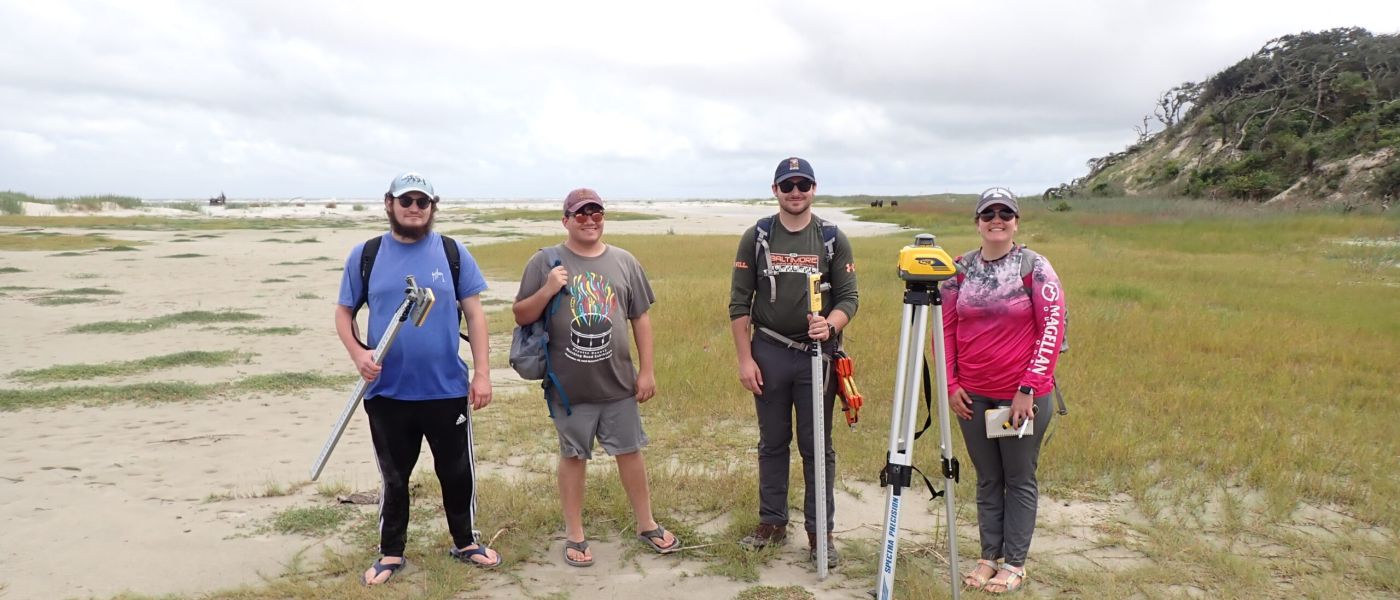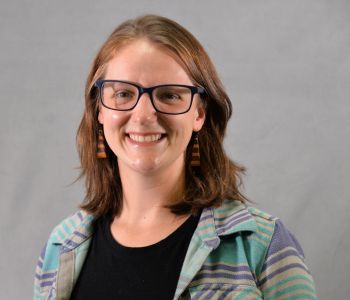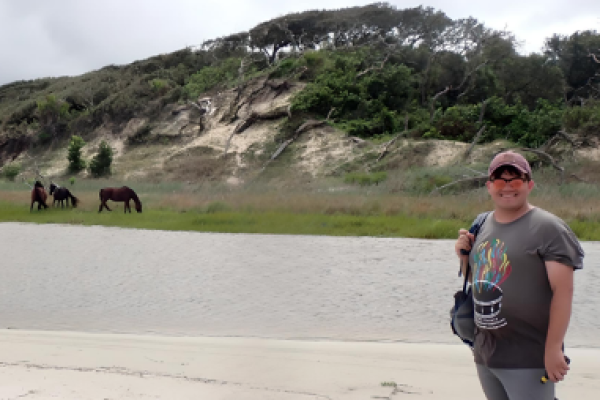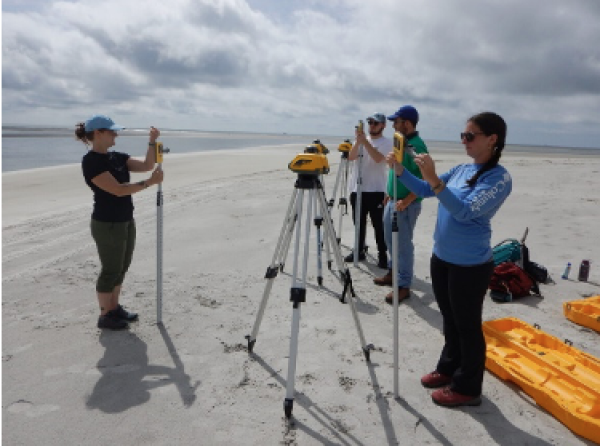- Home
- Academics
- School of Arts and Sciences
- Environmental Science
- Integrated Coastal Geology Certificate
Integrated Coastal Geology Certificate

Have you already earned a Certificate in the Fundamentals of Coastal Geology? Elevate your proficiency with this Certificate in Integrated Coastal Geology, seamlessly bridging your understanding of intricate coastal dynamics with their correlation to subjects like climate change, economic minerals, and oceanography. With a flexible curriculum, each selected course underscores the vital importance of comprehending, analyzing, and managing complex coastal ecosystems. This program equips students with essential skills and knowledge to navigate challenges and opportunities in coastal regions globally, and can be completed in just one year.
Why study Integrated Coastal Geology at Coastal Georgia?
Situated on the coast, our backyard is our natural laboratory, featuring vast marshlands, dynamic sandy beaches, coastal development projects, and numerous real-world case studies exemplifying human-environment interactions. Studying coastal geology in this unique environment offers an exceptional chance to gain robust scientific foundations through abundant hands-on experiences. The program also emphasizes professional development, applied coursework, and workforce preparation, ensuring students are well-equipped for excellent opportunities upon graduation.
What will I learn?
This certificate program provides students with advanced knowledge in coastal morphodynamics, ecosystem processes, and the management of human-Earth interactions. With a flexible curriculum, students can tailor their course selection to align with their career requirements. All courses emphasize fundamental skills, including the safe and proficient application of field and laboratory techniques, quantitative data analysis, critical evaluation of research results, and effective scientific communication in oral, written, and visual formats.
Prerequisite: Certificate in the Fundamentals of Coastal Geology
Earn at least 12 credits in your choice of the following courses:
- GEOL 3740: Sedimentation and Stratigraphy (4)
- GEOL 3750: Marine Geology (4)
- GEOL 3760: Earth Materials and Economic Minerals (4)
- GEOL 4200: Geochemistry (4)
- GEOL 4800: Hydrology (4)
- ENVS 3450: Global Climate Change (3)
- ENVS 3600: Oceanography (4)
- ENVS 4550: Coastal Research Methods (4)
- GEOL 4905: Independent Research Study (1-4)
Fall | Spring | Summer |
GEOL 3760: Earth Materials and Economic Minerals (even years) | GEOL 3350: Coastal Geomorphology | GEOL 3740: Sedimentation and Stratigraphy (even years) |
GEOL 4200: Geochemistry (odd years) | ENVS 3450: Global Climate Change | GEOL 3750: Marine Geology (odd years) |
ENVS 3600: Oceanography | GEOL 4800: Hydrology (even years) | |
ENVS 4550: Coastal Research Methods | ||
GEOL 4905: Independent Research Study (on request) | ||
What can I do when I graduate?
Alumni of this certificate program are well-equipped for diverse positions within the geosciences, encompassing roles such as field and laboratory technicians, as well as those in education and outreach. Notable career prospects include opportunities within the titanium mining industry, which often target heavy minerals located on relict beaches, and positions within governmental agencies tasked with monitoring and managing coastal environments.
Dr. Robin McLachlan

Robin McLachlan is a broadly-trained geologist interested in how the shapes of coastal environments are intimately linked to human development, and vice versa. Specifically, she studies sediment transport from source to sink, mountains to deep sea, focusing on the interaction between sediment and hydrodynamics in the fluvial-marine transition zone. She applies the same scientific rigor and inquiry to her role as an educator and communicator. Her teaching strategies constructively align scientific content and communication skills to best achieve student learning goals and career success.

Student Spotlight: Conlan Bertram
Coastal Georgia alumnus, Conlan Bertram, Class of 2023, is now a Short Term Mine Planner for The Chemours Company. During his academic tenure, Conlan actively engaged in multiple independent study opportunities along the coast, notably undertaking a comprehensive, multi-semester investigation into road flooding and beach erosion on Little Cumberland Island. This research not only enriched his understanding of coastal dynamics, but also equipped him with proficiency in industry-standard field equipment, GIS mapping, and a robust professional network. Post-graduation, Conlan applied this expertise to secure a position as a Mining Engineer Intern with the Chemours Company, subsequently earning promotion to a full-time role as a Short Term Mine Planner. In this capacity, Conlan contributes to the extraction of titanium-bearing sand from relict beaches situated kilometers inland, remnants deposited thousands of years ago during periods of higher sea levels.

Faculty Spotlight: Dr. Robin McLachlan
Dr. Robin McLachlan explores the intricate interplay between the shapes of coastal environments and human development. With a research portfolio spanning from the Mekong River Delta in Vietnam, to Amazonian tidal channels in Brazil and the Golden Isles, she is dedicated to providing students with hands-on research experiences, equipping them with the knowledge, skills, and confidence essential for their future careers. Recognized for her impactful guidance, Dr. McLachlan has received accolades such as Scholar of the Year, and the Excellence in Service-Learning – Sustained Impact Star.